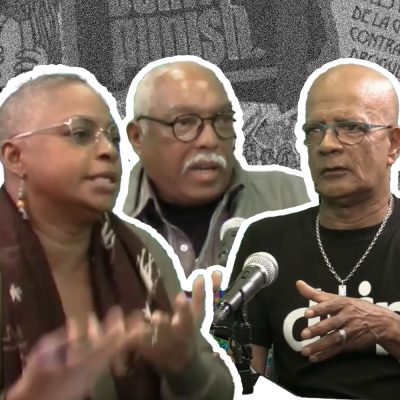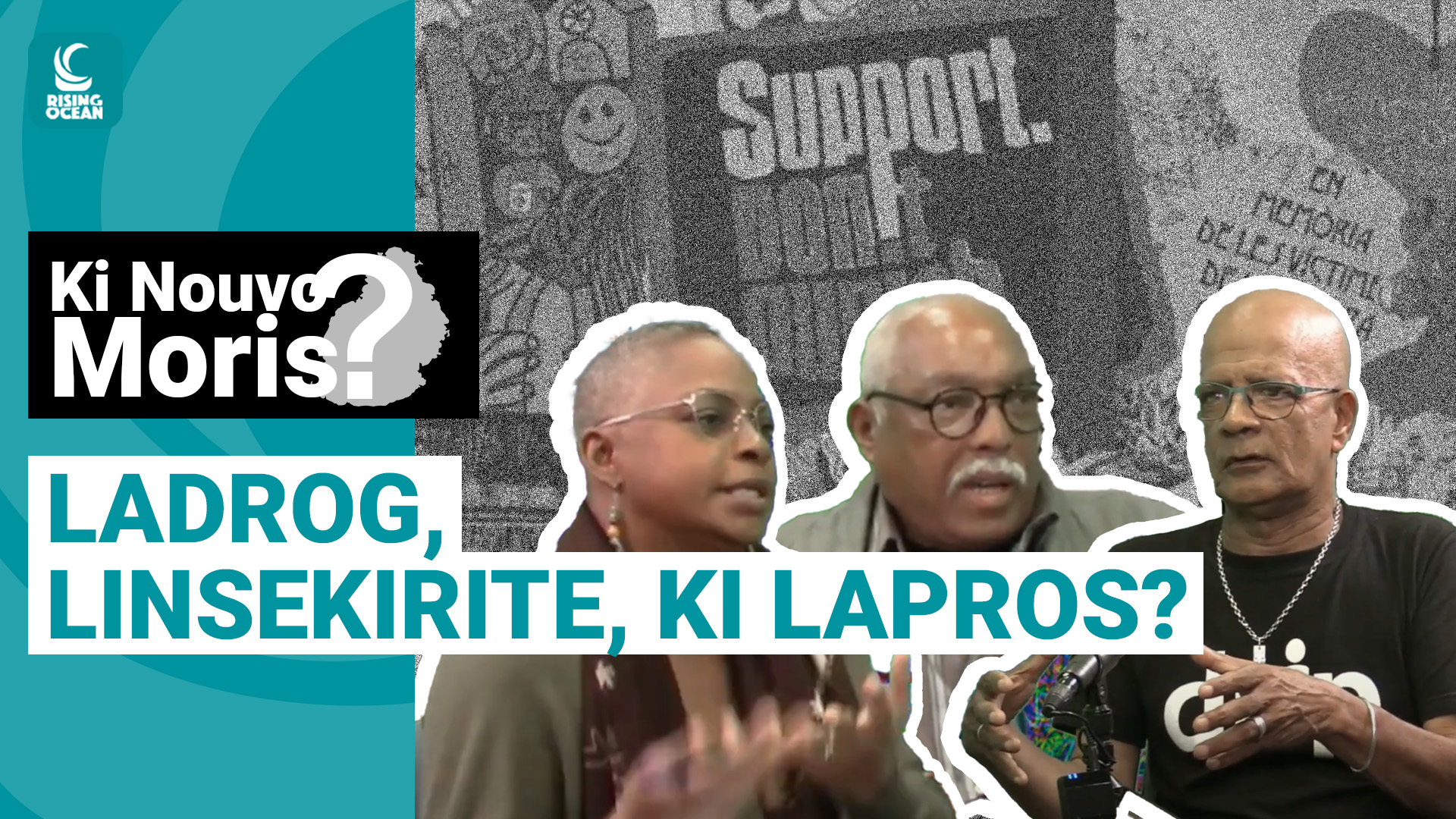June 26 marks the International Day against Drug Abuse and Illicit Trafficking. The ki nouvo moris program of Monday, July 3, 2023, was based on large-scale subjects, which are drugs and insecurity. Nowadays, drugs are unfortunately ubiquitous through Mauritian society, sparing no social class. Our institutions seem to be infiltrated by the mafia and a gangrene has settled in the high authorities which threatens the proper functioning of Mauritius. Indeed, radios and the newspapers show us that almost every day, people are arrested for drug trafficking. With all this cases, several questions are in the influx. Are we adopting the right strategy? And if so, are they effective?
To tackle this theme, Danny Philippe from the non-governmental organization DRIP (Developman, Rassembleman, Informasyon ek Prevensyon) was invited to discuss about the scourge of drugs. The debate was co-hosted by Dany Marie and Georges Legallant.
The World Health Organization (WHO) claims that “Psychoactive drugs are substances that, when taken in or administered into one’s system, affect mental processes, e.g perception, consciousness, cognition or mood and emotions.”
The drug situation in Mauritius is very alarming because there is a rejuvenation and feminization of drug users. Children between the ages of 10 to 17 years old are heavy drug users and according to the information available, an increase in young girls has been noted. Danny Phillipe says it is important to review the drug policy in Mauritius because there is a real hypocrisy regarding treatment given to drug users, knowing full well that alcohol and cigarettes are more devastating in terms of mortality rates than illicit substances sold on the black market in Mauritius. Instead of going for sanctions and acts of repression against these people, educating them regarding the consequences that drugs entail is more appropriate.
“It has been proven that repression does not work, the figures of last year show an increase in drug users. The solution is to go towards the decriminalization of drugs users. It will also be necessary to think about the controlled legalization of cannabis with well-defined protocols as in other countries.”
It is true that all layers of society are involved in the use of drugs in Mauritius, however, those who live in precarious situations are the most vulnerable. The observation made by members of the NGO DRIP is that the situation is very serious and that there is indeed a big drug problem which threatens the proper functioning of Mauritian society. There are a multitude of drugs on the market in Mauritius. Illegal products such as cannabis, heroin, tablets that consumers divert to obtain pleasures are accessible in popular places. In addition, the Forensic Science Laboratory have registered around 40 synthetic drugs since 2013 on Mauritian soil. However, this is only part of the drugs used, those who are more economically well off have their favorites with regard to illegal substances. For these wealthy class, psychedelic drugs like LSD, Cocaine, Methamphetamine and so on are being used.
Danny Philippe goes on to say that there is too much stigma when it comes to drugs. People have demonized drugs injectors too much. It is more than urgent that methadone program be supported by hospitals instead of the institution of the police.
It is necessary to take more into consideration the psycho-social side of the person, retorts Danny Phillipe. Although there is discrimination against drugs injectors and users, the mental aspect of those who suffer from this scourge are unfortunately not taken into account. Many institutions dealing with drug cases put the psychological support of drug users in second place. Indeed, social and psychological support are essential to improve the daily life of drug users.
“Seeing the statistics of child admission to hospital for drug use, one realizes the seriousness of the situation. Young people aged 16 and 17 died of overdose. This is indeed the reason why DRIP began several years ago prevention with early childhood.”
Starting prevention and information from early childhood ensures that children know the effects but above all the consequences of drugs. The resources granted to social workers; NGO are not enough to provide the essential assistance that drug users need. The capital given to help NGO to put forward centers, projects aimed at educating, promoting social inclusion. In order to improve the movement of social workers in the most affected neighborhoods, more economic support is needed. It is only by allocating more financial aid that they will be able to come forward with ways to help those who are affected by the affliction of drugs in Mauritius.


